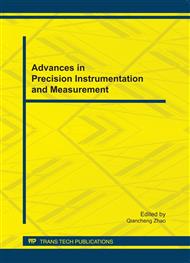p.493
p.498
p.504
p.509
p.513
p.518
p.525
p.531
p.536
Repeated-Evaluation Genetic Algorithm for Simulating Social Security in the Artificial Society
Abstract:
In order to find optimal policy to govern agents’ society, artificial agents have been deployed in simulating social or economic phenomena. However, with an increase of the complexity of agents’ internal behaviors as well as their social interactions, modeling social behaviors and tracking down optimal policies in mathematical form become intractable. In this paper, the repeated evaluation genetic algorithm is used to find optimal solutions to deter criminals in order to reduce the social cost caused by the crimes in the artificial society. The society is characterized by multiple equilibria and noisy parameters. Sampling evaluation is used to evaluate every candidate. The results of experiments show that genetic algorithms can quickly find the optimal solutions.
Info:
Periodical:
Pages:
513-517
DOI:
Citation:
Online since:
September 2011
Authors:
Price:
Сopyright:
© 2012 Trans Tech Publications Ltd. All Rights Reserved
Share:
Citation:


